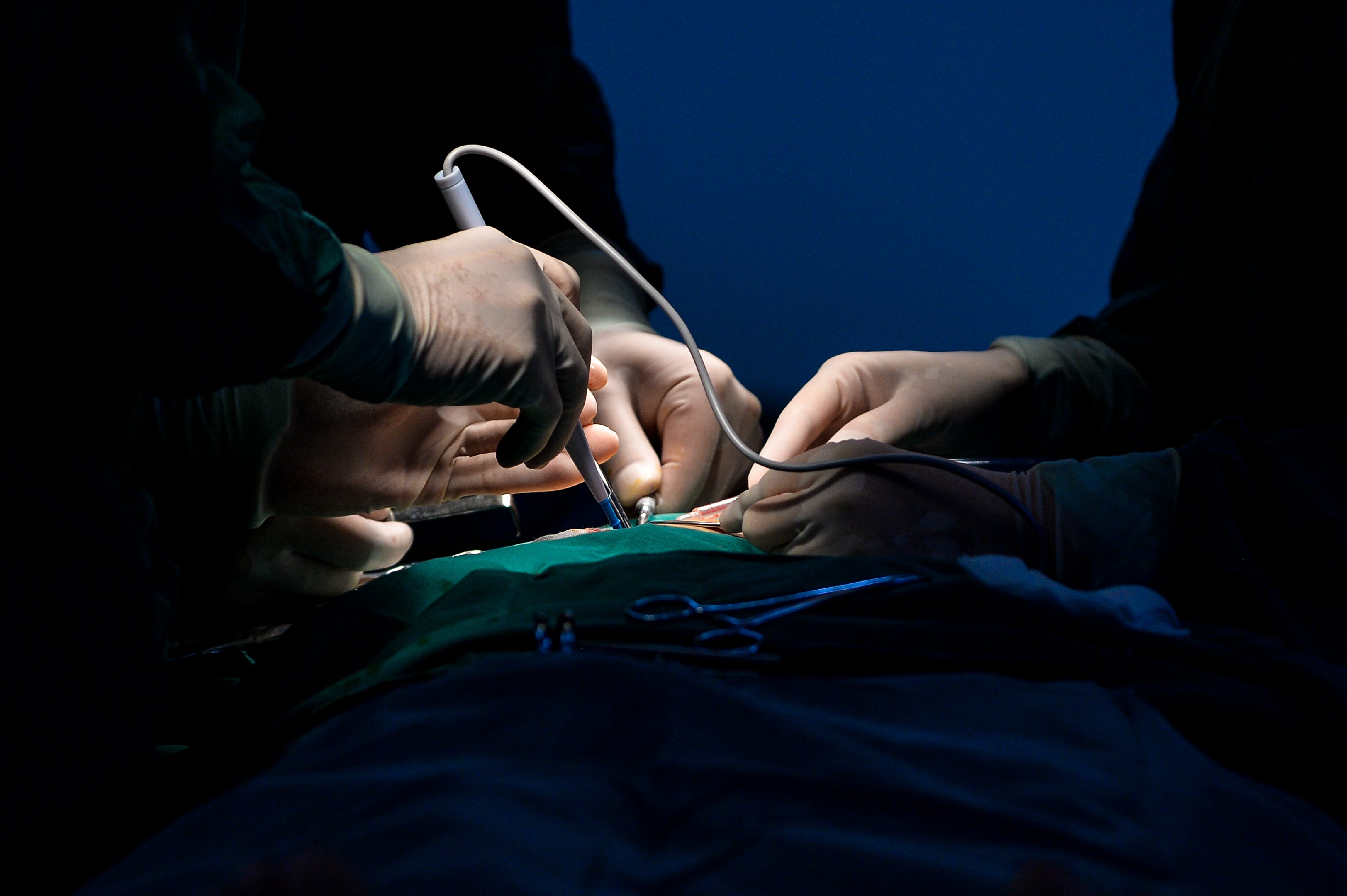NHS trust apologises to 120 women following poor care by NHS gynaecologist
Some women underwent unnecessary surgery including hysterectomies

An investigation by an NHS hospital has found problems with the care of more than 120 women who may have been subjected to unnecessary operations at the hands of former gynaecologist.
University Hospitals of Derby and Burton Foundation Trust (UHDB) contacted nearly 400 women after reports that patients of ex-consultant Daniel Hay suffered "serious harm" between 2015 and 2018.
An interim report published on Tuesday and seen by The Independent, concluded there were major concerns about the care received by 50 patients, with some concern in a further 69 cases.
Lawyers acting on behalf of some of the patients said they were “concerned that life-changing procedures appear to have been conducted without some women being able to make informed decisions about their care".
The review of Hay's care found examples of poor documentation, a lack information on why he opted for certain treatments and decisions as well as some operations being added to the waiting list that were not necessary or could have been avoided.
The majority of major procedures were hysterectomies performed as ‘open’ procedures or using keyhole techniquess. A number of patients had hysterectomies despite a lack of any records showing Hay had considered alternatives before surgery.
A total of 327 cases were reviewed by the NHS England investigation, including 181 gynaecology procedures and 36 obstetrics cases.
The care of 110 women, who attended outpatient appointments at Ripley Hospital, was also investigated.
Detailing some of the areas for concern, the report said: "The interim report, independently written by NHSE, highlights considerable concerns about decision making and the choice of surgery that was undertaken.
"The rationale for surgery is often absent or not clear in the clinical notes and treatment plans did not describe non-surgical options prior to embarking on surgery.
"The standard of documentation is poor, and the assessors took the view that what was not documented was not done."
Mr Hay has since left the trust and has performed no operations since 2018.
The interim report made seven recommendations to the trust, including inviting women to a review of their care, reviewing its measures so information is shared and staff do not work as individuals, and making it easier for other staff to raise concerns about the standard of care.
Dr Magnus Harrison, executive medical director at UHDB, said: "I want to make a full and unreserved apology to all those women who have identified as being harmed.
"When colleagues initially raised concerns in the latter half of 2018 and right through to today we have worked diligently to piece together a picture of the care they received under this consultant in an open and transparent way.
"I want to make clear that the standard of care these women received was far below that which we strive to provide and for that I am very sorry.”
He said the trust had been in touch with all the women who they believe were harmed adding it was the right decision to launch the investigation.
The problems emerged after Hay went off sick and other doctors at the trust had to take over the care of some of his patients. It was at this point they started to raise concerns about how some women had been looked after.
Tim Annett, medical negligence lawyer at Irwin Mitchell who represents women affected, said: "The findings of the report, including the standard of care women received and how operations were apparently carried out without other less invasive options being fully considered first, mirrors the first-hand accounts women have told us as part of our investigations.
"Patient safety should be the fundamental priority. We're particularly concerned that life-changing procedures appear to have been conducted without some women being able to make informed decisions about their care.
"Our clients continue to live with the physical and psychological effects of what happened to them and understandably continue to have concerns about their care.
"We're determined to provide the care and support our clients need to get through this difficult time.
"It's also vital that lessons are learned from the issues identified by the review to improve patient safety for others."
The full report findings are due next year.
Join our commenting forum
Join thought-provoking conversations, follow other Independent readers and see their replies
Comments
Bookmark popover
Removed from bookmarks